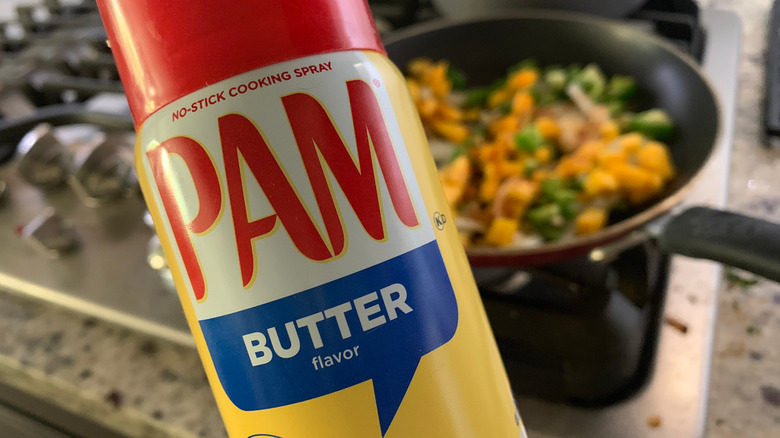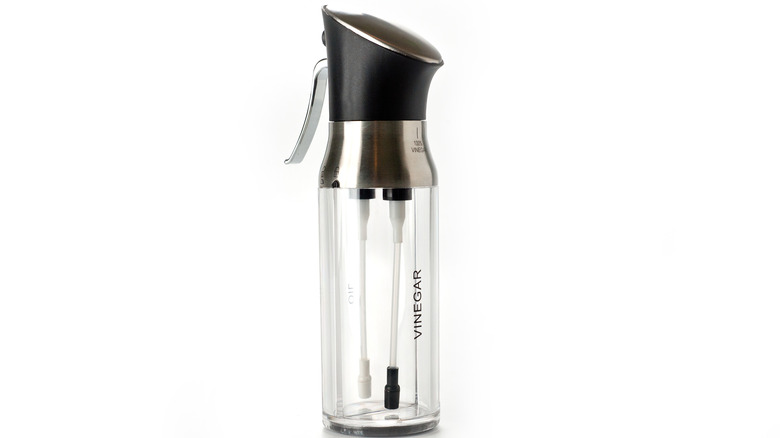The Truth About What's Really In Cooking Spray
Whether non-stick cooking sprays are a staple in your pantry or you eye them with suspicion, one thing is certain — they can't be beaten in terms of convenience when trying to grease a bundt pan or a dozen muffin tins. While traditional aerosol cooking sprays have been around for decades, a slew of more "natural" options have flooded the market, making some wonder if there was something wrong with the original sprays. What's actually in those bottles, anyway?
Most cooking sprays list some type of oil on the label. Cooking spray is basically an oil or combination of oils in a spray can. It's used mainly to provide a non-stick cooking surface, as well as reduce the calorie count of foods by using less fat. "The cooking spray will add fewer calories and less fat to your finished dish," registered dietitian nutritionist Beth Stark told MSN.
Many cooking sprays will list their calorie count as zero on the nutrition label, even though most oils run about 120 calories per tablespoon. That's because 1 "serving" of spray is counted as the amount that comes out in just a quarter of a second, which is not enough time to accumulate a significant amount of fat. In reality, though, most of us spray for much longer than a quick quarter of a second.
An oil mister is an all-natural option
If you take a closer look at the ingredient list, many cooking sprays also contain additives. An emulsifier, such as soy lecithin, is commonly added to keep the ingredients from separating. Anti-foaming agents, such as dimethyl silicone, are used to prevent foaming and splattering during cooking. A propellant, such as butane or propane (in the form of pressurized gas), is added to force the oil out of the can and into your pan.
While critics question the safety of these additives, it's important to note that the U.S. Food and Drug Administration has each of these ingredients on its Generally Recognized as Safe (GRAS) list, and considers them to be safe for human consumption.
Still, for those who would rather avoid the additives found in some sprays, there are many health-conscious alternatives now available. Some brands, such as the Chosen line, don't use additives or propellants in their sprayable oils. As for an all-natural, cost-effective option, you can always buy your own oil mister and fill it with one pure ingredient: your oil of choice. "Using a mister is generally more cost-effective and considered to be a more environmentally friendly option as well," Stark told MSN.


